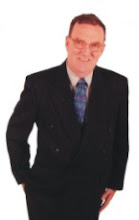Notice the difference that these two presentations of the same words make:
Dear John,
I want a man who knows what love is all about. You are generous, kind, thoughtful. People who are not like you admit to being useless and inferior. You have ruined me for other men. I yearn for you. I have no feelings whatsoever when we’re apart. I can be forever happy—will you let me be yours?
Trish
Or to put it another way:
Dear John.
I want a man who knows what love is. All about you are generous, kind, thoughtful people, who are not like you. Admit to being useless and inferior. You have ruined me. For other men, I yearn. For you, I have no feelings whatsoever. When we’re apart, I can be forever happy. Will you let me be?
Yours,
Trish
Punctuation is important to the spoken word, too.
When I learned to read in primary school, Sister Mary Brutus taught me to count 1 at a comma and three at a full stop. She also taught me to raise my voice at a comma and lower it at the end of a sentence.
These habits have stayed with me and I now follow them intuitively when I speak.
From discussions with people educated more recently than I was, it appears that this has disappeared from the curriculum. It is a shame, at least if no alternative has replaced them.
I also recommend that you write your speeches out with a natural break at the end of each line.
Keep it to about six words per line.
Tape yourself reading this next paragraph:
I don't read my speeches. If I did, however, I would set them out in lines of six words or less in a large type with one phrase or idea per line.
I would place a double space between sentences and never carry a sentence over the page.
This is how I advise those who need to read to speeches to set out their script:
I don't read my speeches.
If I did,
however,
I would set them out
in lines of six words or less
in a large type
with one phrase or idea per line.
I would place a double space
between sentences
and never carry a sentence
over the page.
Now retape yourself reading the larger text, and see how it affects the way that you sound.
Subscribe to:
Post Comments (Atom)




No comments:
Post a Comment